I’ll say this: I look forward to dying. I tend to think of death as the last and best reward for a life well-lived. That’s it.
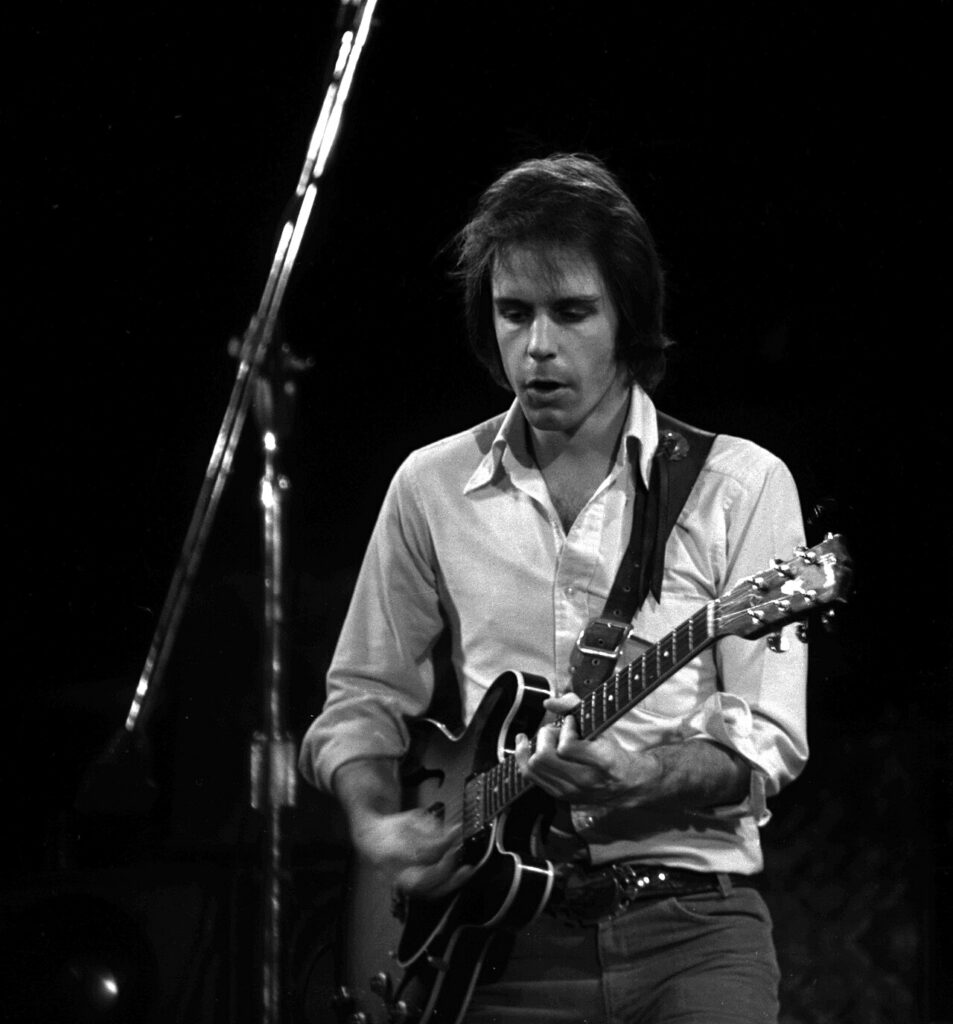
I’ll say this: I look forward to dying. I tend to think of death as the last and best reward for a life well-lived. That’s it.

Last Saturday I went to see Herbie Hancock, it was amazing!
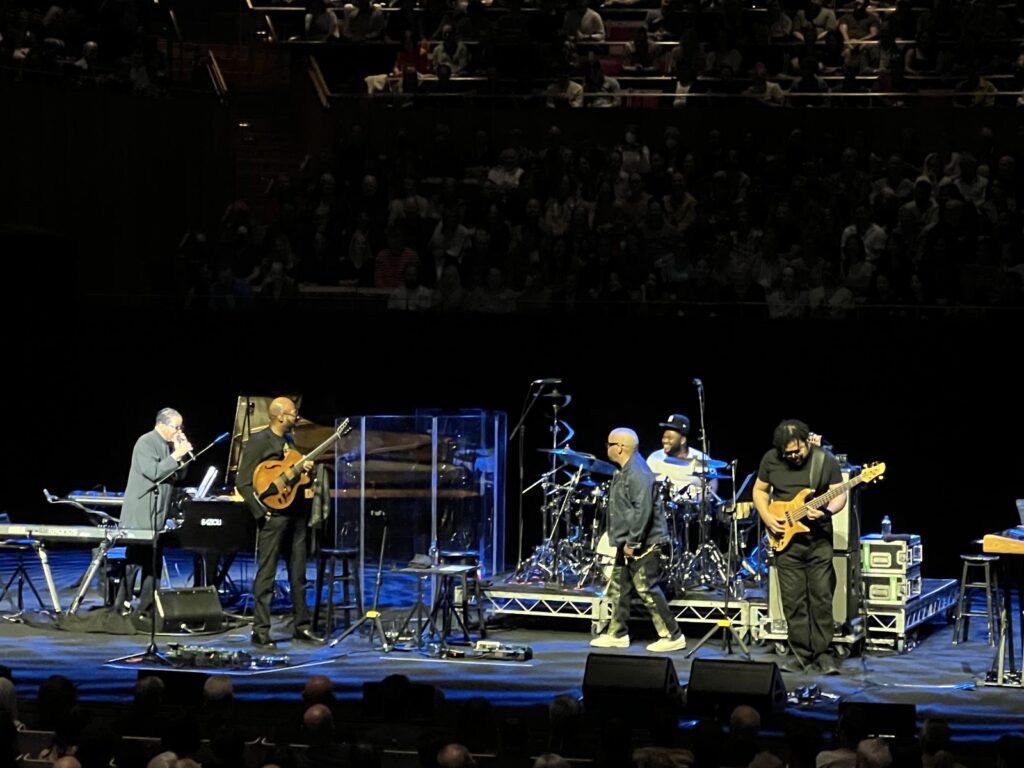
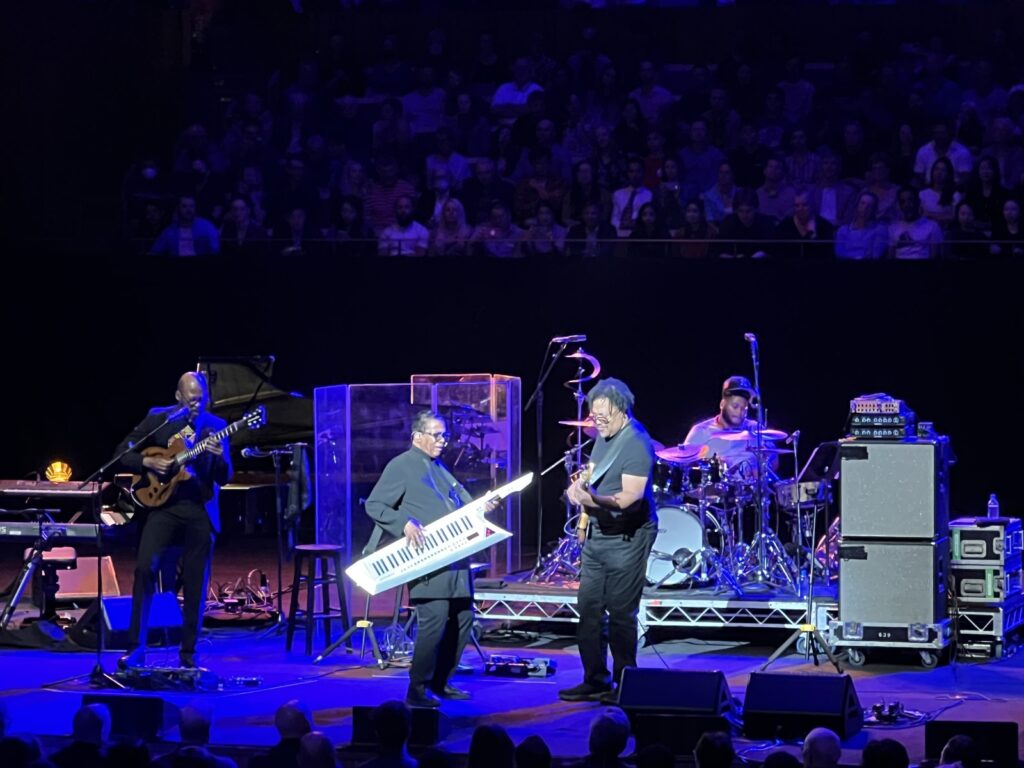
His current band:
Herbie Hancock – Piano, Synth, Keytar
Terence Blanchard – Trumpet, Synth
Lionel Loueke – Guitar
James Genus – Bass
Jaylen Petinaud – Drums
The highlight for me was the young drummer – he’s only 26 – who was incredibly skilled and energetic, had great dynamic control and created a very modern sound using a setup that is not common in straight ahead jazz drumming (e.g. among others he used a clap stack cymbal and a spiral cymbal). The concert had an experimental vibe at times, the trumpeter had a number of effects that made him sound like a whole horns section, the guitarsit did a lot of rhythmic percussive parts and during some solos his guitar sounded like a guitar synth. The bassist at one point, using a looper pedal, played a whole piece by himself (chords and lead) while the rest of the band took a break. Herbie himself made use of some vocoder based patches and played a “spoken words” vocoder solo that had a spiritual vibe, where he talked about his Buddhist faith and the fact that he believes all humans are part of the same family. As a whole the band were incredibly groovy and the concert had high intensity. Herbie, despite his age (he is 84) ended the last piece jumping up and down while playing a keytar, it was very entertaining. There was a well deserved, long standing ovation at the end.
I no longer want my blogs to be based on WordPress. I have migrated this blog, and my old blog in Italian, to ClassicPress which is a project truly maintained by the open source community.
More info here https://www.classicpress.net/
What’s going on with WordPress https://www.theverge.com/2024/10/4/24262410/wordpress-fight-trademarks-open-source-mullenweg
In relation to the Automattic – WP Engine farce: in my opinion the community should create a libre fork of WordPress, so that we are not subject to extraneous corporate entities like Automattic, or drama resulting from infighting between billionaire Karens.
Shaun Martin, keyboard player in Snarky Puppy passed away at just 45. Recently he toured Australia, I wanted to goo see him but it was a weeknight show and I was busy at work, I thought “I’ll go next time” and now there won’t be a next time.
His wonderful music is still there for us to enjoy.

Christmas came and went, so let’s conclude our Atheist Advent 2023. Today we will talk about values and about the misguided argument that you can’t have strong values if you are an Atheist.
Humans tend to capture their core values in writing, and religious books are a notable example of this, which leads some to the conclusion I mentioned above.
The thing is: religious texts are just one of many ways humans record their thoughts about values and morals. The history of secular moral and philosophical texts is just as rich and varied.
In fact, religious doctrines are often inspired by secular texts. Both in the West and in the East, organised religions have assimilated non-religious philosophical traditions that preceded them.
Two examples are the way that Greek philosopy served as the foundation for Christian Theology, and the Chinese theory of the Three Teachings, which considers Confucianist and Taoist philosophies, together with the Buddhist religion, as a harmonious aggregate.
My mother is a retired Classical Literature teacher, so growing up I got to hear many Greek tales before sleep, such as the Aesop fables, and, despite what Christian Epistles claim about pagan texts being immoral, they often have a strong ethical message.
Later on, as an adult, I’ve enjoyed reading Marcus Aurelius’ Meditations. It contains moral and philosophical thoughts that you can act upon to better yourself. This is not a text written by some self-professed self-help guru who is trying to sell you a course. Its main purpose was recording Marcus’ thoughts; that’s what makes it so powerful in my opinion.
It’s not perfect and it’s not for everyone, but that’s fine, we are under no obligation to select a common set of sources and different people can resonate with different authors.
Which brings me to my main criticism of organised religion: the fact that it tries to estabilish a fixed canon, imposing shared values in a fragmented world, which inevitably leads to dogmatic thinking.
Your own guide values, are only going to be strong if they are rooted in your own life. Not in some book that someone else wrote. There are specific experiences your life that gave you wisdom, those will always stay with you in a way that no book ever will.
I just want to conclude this Atheist Advent with one more thought: I might disagree with their book, but I don’t hate anyone, never ever. I genuinely love to hear other people’s perspectives about life. I hope you can say the same about yourself!

At some point 70.000 years ago, the first humans arrived to Oceania.
There were no maps, no previous knowledge of these lands, they literally had to sail towards the unknown. They could have easily died during that journey. But they didn’t, and they discovered a new land.
As humans, we all have this natural curiosity, we want to explore the unknown. Ulysses wanted to go beyond. So did all the pioneers who went to previously unexplored lands. Or the scientists who look into the far universe. Or migrants like me, who one day decided they needed to restart their life somewhere else.
And what is the common trait that all these people have? They threw away the playbook. They weren’t satisfied with common wisdom, because they were looking for something different.
Throwing away the playbook is a very important element of human evolution. If we only ever relied on what we already know, we would still be living in caves.
Most religions, however, give us a sacred text to follow. That’s the playbook. Following a religion, for this reason, often causes people to think in a dogmatic way.
We can say no to this. We can throw away the playbook, just like Giordano Bruno. With one important difference: many of us no longer need to fear that we will get burned alive for doing that. Giordano Bruno didn’t have that privilege.

Today, I would like to talk about the fact that the things that are really important in life, like the people you love for example, are completely free and not transactional. Think about those that you love the most: you don’t love them because you have some vested interest, or expecting something in return. You just love them unconditionally.
Atheism works in exactly the same way: you want to become a better person and do some good in the world, not because of something you will obtain in the afterlife, some type of Paradise or some sort of Nirvana. You are not a toddler or a domesticated animal, you don’t need someone giving you treats to learn something or reach an objective. You just want to better yourself for the simple fact that being a better human is ontologically superior to not being one.
See you in the next post!
I was raised as a catholic.
Growing up and until my early twenties, I was very active, as a volunteer, in an association of Catholic scouts and guides.
During high school, I became familiar with the topic of inter-religious dialogue so I started studying texts from other religions; I read the entirety of the Quran, the Tao Te Ching and the Dhammapada.
In my late twenties, I participated to Bible study sessions and camps organised by a Catholic prelature.
So, take it from someone who knows what they’re talking about: the best way to live life to the fullest, as an independent, strong and committed adult, is to be an Atheist.
I was feeling Christmasy earlier today, so I decided to start a new series of blog posts that I will call “Atheist Advent 2023”.
In each post, I will try to share with you a thought, something that hopefully will stimulate your curiosity.
See you in the next post!
In the desktop web version of YouTube, if you close the browser while you are watching a video, you will then see this the next time you visit YouTube:

This is a typical example of “dark pattern” i.e. a feature that is useful to the website maker (YouTube wants you to be hooked on watching videos to maximise their ads revenue) but hostile to the user (you closed the browser tab because you didn’t want to watch the rest of that video, but you get force-fed that same video once again).
Thankfully, the browser plugin uBlock Origin comes to the rescue. Go to uBlock Origin’s Dashboard, click on the tab “My Filters”, and paste the following:
www.youtube.com##.ytd-miniplayer.style-scope.miniplayerNow, when you visit YouTube, the hostile feature is gone.
Or even better, start using a video service that is not as user-hostile as YouTube, for example PeerTube or Piped.
Edit 8 March 2022: in an older version of this post, I was suggesting Odysee as a possible YouTube alternative. I no longer suggest using Odysee, due to their very invasive notification policy, where you are reminded to “verify” your account (by sharing your credit card data – or other bits of personal info). If you don’t do that – or are unable to, since the verification process is really buggy – you will get notifications every few minutes, and to add insult to injury, you can’t dismiss those.
This is a typical case of “nagware” i.e. a piece of software that is so annoying to use in its current form, that you are pushed to do something – e.g. sharing your credit card data – that you wouldn’t normally do. The best way I know to avoid nagware on Odysee is using this uBlock Origin filter:
odysee.com##.notification__bubble